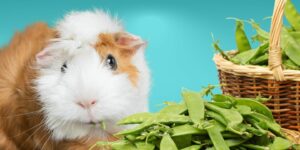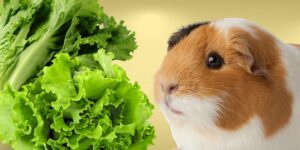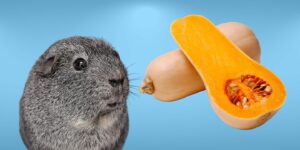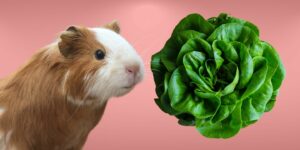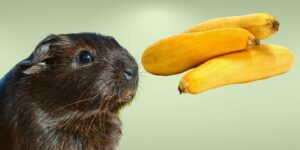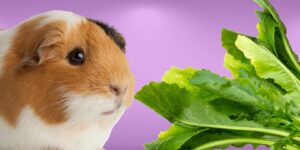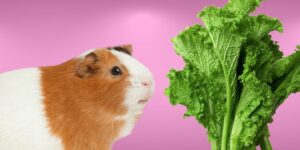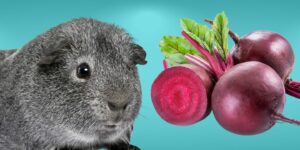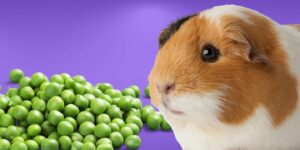Yes, Guinea pigs can eat collard greens as part of a balanced diet. Collard greens are a good source of vitamins, minerals, and fiber for guinea pigs. However, it is important to feed collard greens to Guinea pigs in moderation and to offer a variety of other fresh vegetables and hay to ensure that they get all the nutrients they need.
Importance of a Balanced Diet for Guinea Pigs
A balanced diet is essential for maintaining the health and well-being of Guinea pigs. They require a mix of fresh vegetables, hay, and high-quality pellet food to ensure adequate nutrition and prevent health problems.
Role of Fresh Vegetables in a Guinea Pig's Diet
Fresh vegetables provide variety and essential nutrients to a Guinea pig's diet. They are a vital source of vitamins, minerals, and fiber that contribute to maintaining their overall health.
Nutritional Benefits of Collard Greens for Guinea Pigs
Vitamin C and its Importance for Guinea Pigs
Vitamin C is crucial for Guinea pigs, as they cannot produce it on their own and must obtain it from their diet. Collard greens are a good source of vitamin C, which helps in preventing scurvy, promoting healthy skin, and boosting the immune system.
Vitamin K and its Benefits
Collard greens are also rich in Vitamin K, which plays a crucial role in blood clotting and bone health.
Vitamin A and its Role in Guinea Pigs' Health
Vitamin A in collard greens helps maintain healthy vision, skin, and immune function in Guinea pigs.
Calcium and Bone Health
Collard greens contain calcium, which is essential for maintaining strong bones and teeth in Guinea pigs.
Potassium and Iron in Collard Greens
Potassium found in collard greens helps with maintaining a healthy nervous system, while iron is important for red blood cell production.
Potential Risks and Precautions
Oxalates in Collard Greens
Collard greens contain oxalates, which can pose a risk to Guinea pigs if consumed in large amounts. High oxalate intake can lead to the formation of kidney stones, so it is important to feed collard greens in moderation.
Digestive Upset and Introducing New Foods
Guinea pigs can experience digestive upset when introducing new foods to their diet. Start by offering a small amount of collard greens mixed with their regular food and gradually increase the amount over a few days to avoid digestive issues.
Allergic Reactions and Monitoring for Signs of Discomfort
Though rare, it's important to monitor your Guinea pig for any signs of an allergic reaction or discomfort after consuming collard greens. If any issues arise, discontinue feeding collard greens, and consult with a veterinarian.
How to Feed Collard Greens to Guinea Pigs
Washing and Preparing Collard Greens
Before feeding collard greens to your Guinea pig, thoroughly wash and remove any dirt or debris from the leaves. Cut the leaves into small, manageable pieces for easy consumption.
Introducing Collard Greens Gradually
Introduce collard greens to your Guinea pig's diet gradually to avoid digestive upset.
Mixing Collard Greens with Other Vegetables
Offer collard greens as part of a mix of fresh vegetables to provide a balanced and varied diet.
Avoiding Overfeeding
Do not overfeed collard greens or any other vegetable, as excessive amounts can cause digestive problems.
Portion Size
Determining the Right Portion Size for Your Guinea Pig
The appropriate portion size for collard greens will depend on the size of your Guinea pig and the other foods it is eating. A general guideline is to offer a small handful of collard greens per Guinea pig once or twice per week.
Frequency and Variety in Feeding
Provide collard greens along with a variety of other vegetables, hay, and high-quality pellet food to ensure a balanced diet.
Additional Tips for a Healthy Guinea Pig Diet
Importance of Hay in a Guinea Pig's Diet
Hay is a crucial part of a Guinea pig's diet, providing fiber and promoting dental health. Make sure to always have hay available for your Guinea pig.
High-Quality Pellet Food for Guinea Pigs
Feed your Guinea pig high-quality pellet food specifically designed for them, ensuring they receive essential nutrients in their diet.
Rotating Vegetables for Optimal Nutrition
Rotate the vegetables you feed your Guinea pig to ensure they receive a variety of nutrients and maintain interest in their diet.
Monitoring Your Guinea Pig's Weight and Health
Keep an eye on your Guinea pig's weight and overall health. If you notice any changes or concerns, consult with a veterinarian.
Conclusion
In conclusion, Guinea pigs can eat collard greens as part of a balanced diet. Collard greens are a good source of vitamins, minerals, and fiber for Guinea pigs. However, it is important to feed collard greens in moderation and to offer a variety of other fresh vegetables and hay to ensure that Guinea pigs get all the nutrients they need. Monitor your Guinea pig's health and adjust their diet as needed to maintain optimal health.



